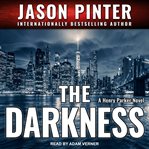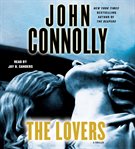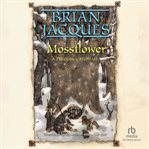Paulina Cole left the office at 4:59 p.m. Her sudden departure nearly caused a panic in the newsroom of the New York Dispatch, where she'd worked as a featured columnist and reporter for several years. Paulina was prone to late nights, though many argued whether the nights were due to a work ethic that was second to none, or simply because she was more comfortable spending her time among competitive, ambitious and bloodthirsty professionals than sitting on the couch with a glass of wine and takeout. She had left that day after a particularly frustrating conference call with the paper's editor in chief, Ted Allen. Paulina had spent the better part of two years becoming the city's most notorious scribe in no small part due to her ambivalence concerning personal attacks, heated vendettas, and a complete refusal to allow anyone to get the best of her. When her instincts faltered, she called in favors. When she got scooped, she would trump the scoop by digging deeper. And she held grudges like ordinary folks held on to family heirlooms. Which is why, after reading a copy of that morning's New York Gazette, the paper Paulina used to work for and now wished buried under a paper landfill, she demanded to speak with Ted. She knew the man had a two o'clock tee time, but she'd seen him golf before and cell phone interruption might even improve his thirty-seven handicap. That day's Gazette featured a story about the murder of a young man named Stephen Gaines. Gaines's head had met the business end of a revolver recently, and in a twist of fate that Paulina could only have wished for on the most glorious of days, the prime suspect was none other than Gaines's father, James Parker. James Parker also happened to be the father of Henry Parker, the Gazette's rising young star reporter, whom Paulina had as much fondness for as her monthly cycle. Paulina had cut her teeth at the Gazette, and had briefly worked side by side with Henry Parker. But after seeing what the Gazette had become--an old, tired rag, refusing to adapt to new technologies or understand that hard news was essentially dead--she'd made it her business to put the paper out of its misery. Nobody cared to read about the government or the economy--at least not on a grand scale. They only cared about what they saw right in front of them, day in and day out. Their mortgage payments. Their bank accounts. It was all visceral. You bought the celebrity magazine so you could make fun of the stars' cellulite with your friends. You shook your head at the news program that exposed the foreman whose building was overrun with rats because he refused to pony up for an exterminator. You scorned the politician's wife who stood silent at the press conference by her cheating louse of a husband. Paulina gave those with no life something to live for, something to chat about at the nail salon. The New York Gazette was dead. It just didn't know it yet. So when Ted Allen suggested that Paulina write an article about vampires, she was taken aback to say the least. "Vampires are huge," Allen had said. "There are those books that have sold like a gajillion copies. Now there are movies, television shows, soundtrack albums. Hell, newspapers are the only medium that isn't getting a piece of it. Teenage girls love them, and teenage boys want to get into the pants of teenage girls. And this all scares the living hell--no pun intended--out of their parents, so you write a piece on vampires I bet it's one of our bestselling editions of the year." "What the hell do I know about stupid vampires?" Paulina said, laughing at herself for even asking the question. She stopped laughing when she realized Ted was serious. "Oh, I don't know," Allen had said. "Didn't I hear about some boys and girls who go around biting people on the neck because they think they can be vampires? Go interview them. Even better, go undercover and pretend to be one of them. You know, pretend you like to bite people's necks and see what they tell you." "Ted, I'm in my forties," Paulina said. "I don't think going undercover with teenagers will fly." "Are you kidding?" Ted said. "What's that term? Milf? The teenage boys will love you." That's when Paulina left. Rain beat down upon the streets steadily, with the precision of soft drumbeats. The drops splashed upward as they struck the pavement, and Paulina felt the water soaking her ankles as she exited into the gloom. A bottle of Finca Vieja Tempranillo was waiting at home. It was a good red wine, with a slight plum taste, and she could picture slipping into a warm bath with a glass in one hand and a romance novel in the other. The rest of the bottle sitting on the ledge just within reach, ready to be tilted until the last drops were consumed. Ordinarily she was not that kind of girl, in fact laughed at those who were, but Paulina needed a night away from it all. Paulina opened up an umbrella and stepped into the sea of New Yorkers, entering the crowded bloodstream known as the commute home. The streets were chock-full of open umbrellas, and she tried to wedge her way into the crowd without having her eye poked out by a random spoke. As she took her first step, Paulina heard a man's voice yell, "Miss Cole! Miss Cole!" She saw a man wearing a dapper suit and dark overcoat approaching. He was tall, six one or two, with hair so blond it was nearly white, peeking out from underneath a billed cap. He looked to be in good shape, late thirties or early forties, and for a brief moment Paulina felt her heart rate speed up. The car service company had really stepped up their recruiting. "Miss Cole," the man said, stopping in front of her. "My name is Chester. I'm from New York Taxi and Limo. Ted Allen called to request a ride home for you." "Is that so," Paulina said, barely hiding her smile. She knew months ago that she had Ted by the balls. Things like this proved it. Keeping her happy and pumping out pieces was worth hundreds of thousands of dollars a year to the Dispatch, and the publicity she received raised the paper's profile more than their "crackerjack" investigative team ever could. That Ted would extend an olive branch so quickly surprised her at first, but if she ran the company she'd want to make sure her star reporter got home safe, sound and dry. "Please," Chester said, "come with me." Chester opened up a much larger umbrella and held it out. Paulina smiled at him, a big, bright, toothy smile, and stepped under the umbrella. He led her to a Lincoln Town Car which sat double-parked at the curb. Holding the umbrella to shield her from the rain, the driver opened the door. Paulina thanked him, picked up the hem of her skirt and climbed into the backseat of the car. The driver shut the door, and Paulina watched as he walked around to the front. Two sealed bottles of water were set in a pair of cup holders, and crisp new editions of that morning's newspapers were folded in the pocket in front of her. The rain pattered against the windows as Paulina unscrewed one of the bottles and took a long, deep sip. The driver flicked on his blinker and pulled into traffic. He headed uptown. The only sound Paulina could hear was the rubber squeaking of the windshield wipers. The only smell that of the car's leather. "Good day, miss?" the driver asked. "Better than some, worse than others," she replied. Traffic was bumper to bumper, and the car inched along. Paulina began to grow restless. As much as she hated taking the subway, she probably would have been home by now. "You think there might be a faster route?" she asked, leaning forward slightly when the car stopped at a red light. The driver turned around, grinned. "Let's see what we can do." The driver made a right turn, and soon the car was heading east. When they got to First Avenue, Paulina could see signs for the FDR Drive north. He pulled onto the on-ramp and headed uptown. The FDR tended to get flooded during heavy rain, but Paulina didn't mind chancing that to get home quicker. She watched the cars outside, eyes widening as she saw her exit, Sixty-first Street, appear in the distance. Yet instead of slowing down and pulling left toward the exit ramp, the car sped along, bypassing the exit completely. "Hey!" Paulina said, leaning forward again. "That was my stop. This isn't NASCAR, pay attention." "My apologies," the driver said, "I must not have seen it." "No kidding, Stevie Wonder." Paulina cursed under her breath. The next exit wasn't until Ninety-sixth Street, and then he would have to loop all the way back downtown. Just like Ted Allen to hire a car service and get a driver dumber than a pile of bricks. Traffic moved along steadily, and Paulina sighed as they approached the Ninety-sixth Street exit. "Exit's coming up," she said, making sure to remind him. "Got it, thanks, Miss Cole." As they approached the exit, Paulina noticed the car was not slowing down at all. "Hey, will you slow down? What the hell is wrong with you? You're going to miss it!" The car drove right by the exit without slowing down one bit. "Where the hell are you going?" Paulina yelled. The driver did not answer. "I'm calling Ted. You'll work as a brain surgeon before you ever work our account again." "Put the phone down, Miss Cole." The driver's voice had lost all of its pleasantries. "Screw you. Now I'm calling the cops. Forget our account. Your ass is going to jail." She took out her cell phone and flipped open the cover. "If you ever want to see your daughter with all her limbs intact, you'll put the phone down right now." Paulina's mouth fell open in a silent scream. Her daughter...how did this man even know about her? Paulina's daughter lived with her first husband, a loser of a man named Chad Wozniak. He was a good father, an aspiring architect who never progressed beyond the word aspiring. He was a good man, a decent man, but not a provider. That's what Paulina had wanted for her family, but in the end she had to do what Chad could not. Abigail. She was twenty years old. A junior in college. A 3.7 average, captain of the soccer team at some all-girls' school up in Massachusetts. She and Paulina barely spoke. Maybe once every few months, and usually only when Abby's checking account ran low. Abby was beautiful, even if sometimes this budding young woman seemed like a stranger to her own mother. "You're a sick monster," Paulina said, closing the phone. "Don't be like that. We're almost there." The driver took the FDR to the Triboro Bridge, pulling off once they'd arrived in Queens. He skidded around an off-ramp, took several turns in a neighborhood Paulina did not recognize, and slowly eased into an alleyway bookended by two buildings that looked like they were about to collapse. Paulina could see nobody, hear nobody. She was all alone with this man. Through the rain and desolation, nobody would hear her if she screamed. The driver exited the car and walked around to the backseat. Paulina locked the door from the inside. She heard a click as the driver unlocked it with his remote. Before she could lock it again, he threw open the door, grabbed Paulina by her coat and spun her into the mud. Wet slop splashed into her face. Paulina felt her eyes grow warm, anger rising inside of her. She launched herself at the man, her nails bared to rake at his face, but he merely grabbed her by the neck, held it for one horrible moment as he stared into her eyes. Then Paulina felt him press something against her side, and suddenly she felt a scorching pain worse than anything she'd ever experienced. Her body twitched as she screamed. She lost control of her bladder, then dropped facedown into the mud. Paulina looked up to see the man holding a Taser, smiling. "I wouldn't do that again. I can smell your piss." Paulina could feel hot tears pouring down her face. She was on her hands and knees, caked in grime, and her body felt like it had just been plugged into an electrical socket. She slowly got to her knees, managed to stand up, her breath harsh and ragged. "What do you want?" she cried. "Money? Sex?" She shuddered at the last word, praying he didn't, praying there was something else, something that wouldn't leave a scar. Pain she could take, but that kind of pain would never leave. The man shook his head. Holding the Taser, he reached inside his overcoat, rain beading down the dark fabric. The water spilled down his forehead into his eyes, but the man who called himself Chester hardly seemed to notice. He removed something from his pocket and held it out to Paulina. She focused her eyes, then gasped. It was a picture of her daughter, Abby. She was at the beach, wearing a cute pink bikini, standing in front of a massive hole she must have dug in the sand. The photo looked fairly recent, within the last year or so. Abigail's eyes were bright and cheerful, her skin a golden brown. Abby. She looked so joyful. Her daughter. "Where did you get that?" Paulina yelled. "Do you really need to ask? I had a dozen others to choose from. You really should tell her to be careful of what photos she posts on the Internet." "You're a freak," she spat. "What the hell do you want?" "I want you to listen to me very carefully," the man said. He stepped closer, still holding out the photograph. Water droplets landed on the photo but he didn't seem to care. "A long time ago, I fought in a war. I fought alongside men and women who were like my own blood. Then, one day, we found ourselves trapped. There was one man I fought with who was like family, closer to me than anyone. He was like a daughter. A mother. A brother." Paulina shivered. "That day, we found ourselves fighting for our lives. And all of a sudden, out of nowhere, someone throws a grenade at us. I was out of harm's way, but the grenade went off right beside this man I cared about. I remember looking at him after the smoke cleared. He blinked his eyes, looked around like he was just confused. The only thing I remember more than his eyes was the splash of blood beneath him. Right where his legs had been blown clean off." Excerpted from The Darkness by Jason Pinter All rights reserved by the original copyright owners. Excerpts are provided for display purposes only and may not be reproduced, reprinted or distributed without the written permission of the publisher.






